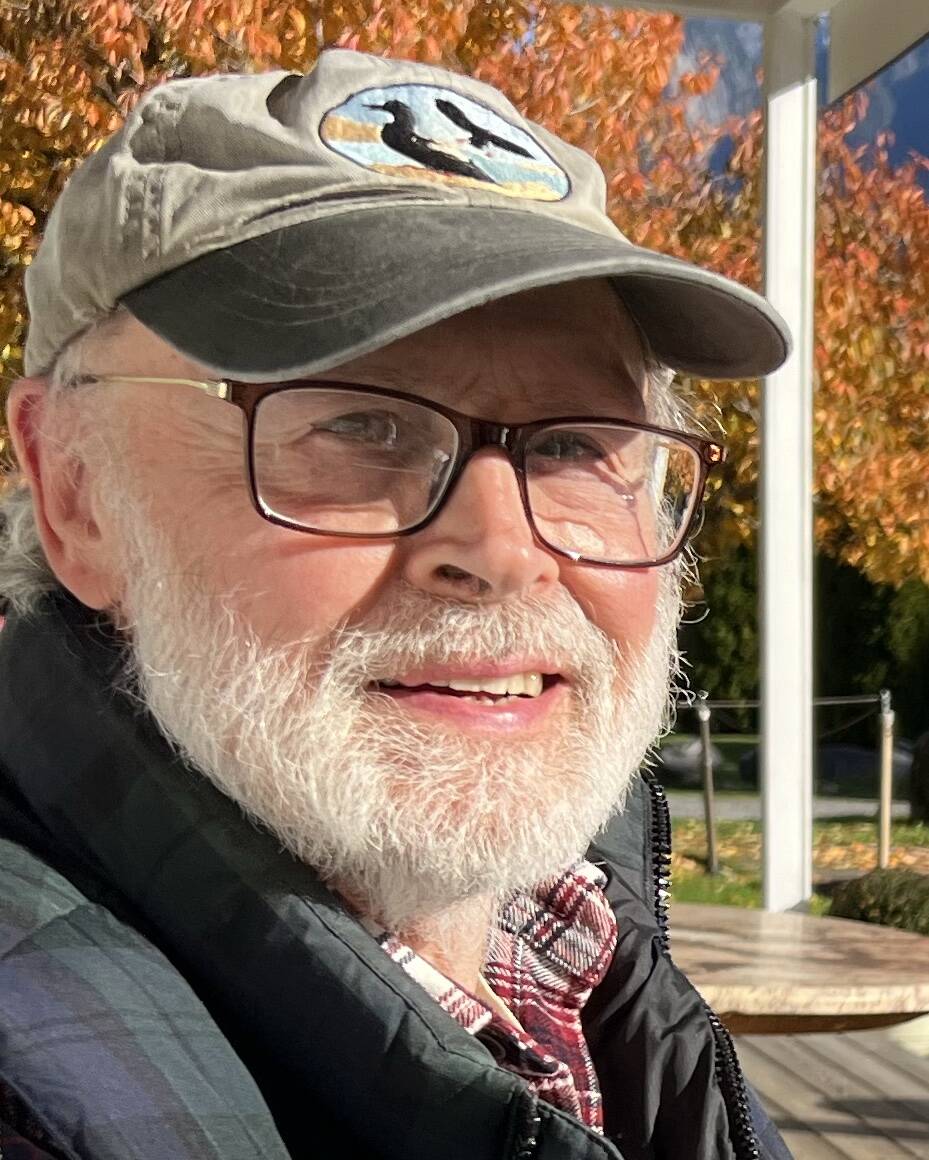Forty-five years ago my wife and I created a homestead in a wild corner of Whidbey Island, more akin to what others have created in the wilds of Alaska or Canada. We bought an inexpensive tract of forest with a small creek and wetland, a half mile from the nearest road, power line or neighbor. It was a place where we were less subject to the rules laid down by the county, although we did apply for the owner builder home permit available back then.
We only had access to our property by a primitive logging road that tended to “eat up” vehicles. We went through a series of old trucks and a four wheel drive jeep before we finally let the old road go. For most of our 45 years there, we parked a half mile from the house at the end of a foot trail, and we had a donkey with a cart and a pack saddle to bring in loads. We harvested firewood from our land for heating and had access to a spring for water. We built our own small house and a barn for our donkey and dairy goat, and a coop for chickens. Our backwoods garden never really thrived, because we couldn’t bring ourselves to cut enough trees down to let in adequate sunlight. Eventually I leased garden space at the Greenbank Farm.
Henry David Thoreau once wrote: “I went to the woods because I wished to live deliberately, to front only the essential facts of life, and see if I could not learn what it had to teach, and not, when I came to die, discover that I had not lived.” I felt much the same living in our woods.
Over time we came to realize that the wonderful natural world that surrounded us was in increasing need of saving. So we joined in efforts to preserve and restore natural ecosystems, the native flora and fauna. I joined in the protest in the summer of 1977 of the logging of the last tract of old growth forest near South Whidbey State Park. And my wife and I joined in additional protests of large scale logging on the island in 1989, and in the campaign in 1997 to turn the Greenbank Farm into a public farm park instead of a housing tract.
We also realized that there were other measures that were needed to maintain the health of the natural environment. One was to encourage organic, sustainable farming and gardening here. Chemicals used in agriculture were harming many wild creatures, and they weren’t all that good for our health either. So we helped start a chapter of a regional organic farming and gardening organization. Our chapter became South Whidbey Tilth, the home of a farmers market and gardens at Thompson Road and Highway 525.
After 45 years in the wilderness we have left our woods to rewild itself. The nut and fruit trees we planted and the reintroduced native plants, such as high bush cranberry and Indian plum, will feed wildlife for years to come. Our old cabin home will serve as habitat for wildlife, such as bats, birds, mice and chipmunks, as it collapses into a heap of wood worn down by carpenter ants, hopefully with minimal toxic waste, since we even used sheep’s wool rather than fiberglass insulation. We hope that the rewilding will be fairly permanent, because we have willed our land to the Whidbey Camano Land Trust. There are more suitable places on the island for those who would like to farm and garden here.
For almost a year now, we have been “townies,” living in the city of Langley in modest, pleasant housing, surrounded by hundreds of neighbors. A good many of them are friends, and almost as old and retiring as I am these days. People ask how we like city life. I confess that it feels a little too soft and overly convenient after the woods. I have always been very suspicious of a life without need of muscles or exposure to the elements, or a life divorced from wild nature.
However, life here has new challenges and delights. I remember our first day in town, when the library kicked us out at 6 p.m. closing time, and we stepped outside and realized that instead of an 18-mile drive and a half-mile walk in the dark and cold, we had a 200-foot walk to our door. And once we were home, there was no need to build a wood fire to warm the place up. No need to collect a jug of water from the spring, or start a pot heating on the stove for later use. And we can still enjoy a walk in the nearby countryside on an island getting more rewilded every day.
Dr. Michael Seraphinoff is a Whidbey Island resident, a former professor at Skagit Valley College and academic consultant to the International Baccalaureate Organization.



